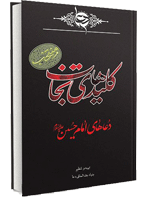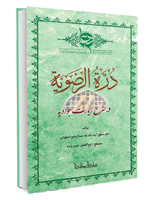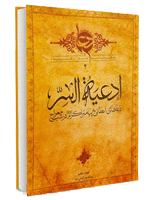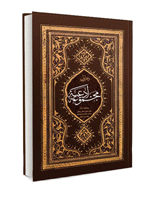- Prophet Muhammad (P.B.U.H&HF): Whenever one of you is needy and brings that to other people, he will not be satisfied. and Whenever someone is needy and brings that to Lord, he shall give him what he wants. sooner or later.
- Imam Sadiq (As.): Whenever you had tenderness in your heart, Pray. because your heart doesn't get tender unless it's pure.
- I told to Imam Baqir (A.S): “What is the meaning of “truly, Ibrahim was awwah and patient”? He replied: “Awwah means (the one who is) praying (to) and wailing (for God) a lot.””
- “Two people, who have acted alike, enter the heaven, but one of them sees the other one in a higher place. Then, he says: O’ Lord! How come has he a superior place in comparison to me while we acted alike? God the Almighty replies: “because he asked Me (whatever he needed) and you did not do that”.
- “The most knowledgeable person to God is the one who asks more from Him”
- “Whoever prays a lot, the angels say: This voice is familiar (to us) and this is the supplication which is accepted and this is the need which is provided”
-
The Holy Prophet (peace be upon him and his Household):
-
وَ لَوْ عَرَفْتُمُ اللَّهَ حَقَّ مَعْرِفَتِهِ لَزَالَتِ الْجِبَالُ بِدُعَائِكُم
If you knew god the way you should’ve known, Mountains definitely will be moved by your supplications. - Crying out of fear of God is the key to his mercy, it’s a sign for his acceptance and it’s a door to answering [supplications]
- Pray to God and believe in his answeres. But understand that God won't accept prays from an unwitting oblivious heart.
The effect of supplication in the scheme of creation from the point of view of three philosophers (Avicenna, Mulla Sadra and Allamah Tabatabaei)
بسم الله الرّحمن الرّحیم
The effect of supplication in the scheme of creation from the point of view of three philosophers (Avicenna, Mulla Sadra and Allamah Tabatabaei)
Author: Ali Mohammad Sajedi, Fatimah Zar’e
Translator: AbdolQhadir Mojahid Ghaznavi
Summary
Supplication is a means of expressing the servant's helplessness and need to the Creator and the most beautiful manifestation of surrender and servitude at the threshold of God's sanctuary. The spiritual dimensions of supplication have not made the thinkers' needless of theoretical investigations and analysis; Rather, it has called Islamic philosophers to reflect on its relationship with divine fate and destiny, the structure of cause and effect, God's knowledge and will, and whether the effect of supplication causes passivity in God's essence or not. In this essay, from the point of view of the three aforementioned philosophers in the title of the article, we discovered the following points: First, supplication itself is a part of divine fate and destiny in the law of causes and effect, it is the means that leads the supplicant to reach his destination. Secondly, human action with all its characteristics, including its optionality and freedom of will, is known and intended by Almighty God, and with regard to this fact, the role of spiritual factors in determining human destiny is evaluated. Thirdly, acceptance of the servant's prayer is not a requirement of passivity in God's nature and knowledge; Because according to Avicenna’s belief, The true effective in the matter of supplication, both the state of supplication and the need of the servant as well as its effects, is only the First Principle. Supplication is an effect of the Supreme Being, and the Supreme does not become affected by the inferiors; However, according to Mulla Sadra, it is these heavenly souls who are affected by the conditions of earthly people and become passive, not the essence or will of the Almighty Truth. Finally, according to Allamah Tabatabai's belief, God Almighty's knowledge of the beings and events of the world is according to the objective reality (nafsul-amr, which everything has an abstract and objective reality in the divine knowledge), and God's knowledge is the actual knowledge which is the source of the existence of all beings. Since God's knowledge equals His essence, supplication does not require passivity in the essence and knowledge of the Most High.
Keywords: Supplication, Avicenna, Mulla Sadra, Allamah Tabatabaei, Fate and Distiny, Divine knowledge, Divine will.
Preface
Supplication is one of the sublime and deep-rooted concepts in the Islamic culture and other monotheistic religions and a type of religious behavior that everyone performs according to their level of knowledge and awareness in the presence of God, the Almighty. Supplication is considered as an effective factor in the system of existence and it means the possibility of changing fate and destiny. Despite the importance of supplication amongst religious teachings, due to its misunderstanding, there have always been ambiguities associated with this concept, to the extent that some philosophical and theological approaches have denied it. The existence of some self-evident philosophical issues, such as the law of causality, as well as some theological principles, such as Fate and Distiny, and the knowledge and will of the Almighty, in the first glance, have been considered incompatible with supplication. In this regard, Muslim philosophers have made efforts to disambiguate the influence of supplication in the system of existence and have tried to clarify its hidden angles, proving that supplication is not contradict philosophical and theological approaches (mainly Shia theology).
This research aims to investigate the ambiguities in this debate, which are mostly related to the way supplication affects the system of existence from the point of view of three Muslim thinkers, Ibn Sina, Mulla Sadra and Allamah Tabatabaei. In short, it should be said that according to sages, supplication is effective in the system of existence or the structure of the universe, and the most important effect of supplication and appealing is to achieve lofty objectives. In other words, when the human soul turns to its Lord, it gives up animal pleasures and materialistic, sensual and fleeting-futile desires, it distances itself from the corporeal-darkened body which is a blockade between man and the holy realm, and reaches a level where the gates of God's mercy are opened to him and he receives His grace. It is in this state that man, under the shadow of purifying his soul and avoiding physical effluence and materialistic and sensual pleasures, attains authority from his Lord, which can be the source of alteration, modification and miraculous changes that cannot be explained and justified by the criteria of sensory, empirical and external common sciences; For example, he can heal a disease or make evil people sick or transform one element into another element.
Sages also have related other results to supplication; including gaining a sense of humility and refraction, admitting one's helplessness and need in front of God, improving the relationship of servitude, and also admitting that in front of the greatness of the Creator, the supplicant has remained veiled in the state of imperfection of possibility and he is rolling down in the valley of poverty, need, and helplessness.
2.The fundamentals of Ibn Sina, Mulla Sadra and Allamah Tabatabaei on the issue of the effect of Supplication on the existence.
The Universe having multiple stages/gradations (longitudinal dimensions)
From Avicenna’s point of view, existence begins from the Prime Origin and inferior to the Supreme Being, there are divine angels who are spiritual and immaterial/incorporeal (independent of materialistic dimension and aspects), and are called intellects. Consequently, the rank of angels, there are other spiritual beings called Nufus (souls), who have the ability to act. Then, the levels of heavenly bodies and spheres down to the creation of matter. In the first stage, the primary matter takes the form of elements and then step by step, takes more complete forms. Therefore, the first material phenomenon will be lower and more imperfect than the subsequent phenomena. Regarding this system of creation, the lowest order of existence is matter itself, then the elements, next, plants, and subsequent to that is the order of animals, which the most perfect animal (having soul and ability to act) is man, and the highest man is the one whose soul has elevated to the level of actual intellect and he has acquired morality, which is the source of practical virtues, and the best person of this group is the one who acquires the capacity to reach the rank of prophethood (6, p. 336; 8, p. 365-366). According to Mulla Sadra, the true being/wujud is the One, whose nature is equivocal, having gradations. He believes in objects having a natural, exemplary, rational, and divine gradations of existence, and based on the law of causality, there is precedence and backwardness between them (12, Vol. 6, p. 262). Therefore, from his point of view, there are four realms of actualization in the world of existence, which are as follows: Lāhūt, "the Realm of the Divine Theophany", Jabarūt, the sphere of the Divine Omnipotence or celestial Powers, Malakūt, the world the angels, “the Kingdom of God”, and Nasut, the world which is this "mortal world" (12, vol. 7, pp. 255-256). These realms are arranged according to the intensity of existence, and there is compatibility between them.
Sadr al-Muta’allehin explains the influence of supplication in the system of existence based on the longitudinal levels of existence.
According to Allamah Tabatabaei, the creation of the world is a longitudinal system, which according to order, causality and effect, appearance and manifestation, there is antecedence and subsequence between them (23, p.: 157). From his viewpoint, there are four general worlds which are actualized according to existence and each one is according to the other:
First, the world of names and attributes, which is called the world of theology;
Second, the world of complete celibacy, which is called the world of intellect, spirit and courage;
Third, the world of mundus imaginalis, which is called the world of imagination and suspended images, purgatory and kingdom;
Fourth, the world of nature, which is called the world of Nasut (23, p. 158; 24, p. 191-195). It goes without saying that the effect of supplication from his point of view is determined according to these longitudinal levels of existence about man and his actions.
According to what has been said, it can be said that according to Mulla Sadra, celestial beings play an influential role in the world occurrences. He also believes that celestial beings have such an influence in the case of supplication being answered.
Therefore, Mulla Sadra, like Ibn Sina, considers celestial and human souls to play a role in the world, and in the matter of supplication, they consider them as helpers and mediators of divine grace to the supplicant.
While Allamah Tabatabaei in his commentary on Asfar believes that Ibn Sina's and Mulla Sadra's words are based on some philosophical principles and some thematic principles that are among natural and mathematical issues, and the discussion should not be explained with thematic principles whose invalidity has been revealed.
Translator: Avoiding prolonging the subject in the translation, in the following, we just mention the titles of the subjects discussed in the source article by the author:
- The relationship of supplication with fate and destiny and the cause-and-effect system from the point of view of Avicenna, Mulla Sadra and Allamah Tabatabai (supplication is one of the systematic laws of the world).
- Supplication and non-passivity in essence, knowledge and divine will, from the point of view of Avicenna, Mulla Sadra and Allamah Tabatabaei.
- The relationship between supplication and God's will from the point of view of Ibn Sina, Mulla Sadra and Allamah Tabatabaei.
- The relationship between supplication and divine knowledge from the point of view of Ibn Sina, Mulla Sadra and Allamah Tabatabaei
- The common ground and differences in the viewpoints of all three philosophers (comparatively):
According to the comparative study by the authors of this article, it can be stated that Ibn Sina/Avicenna, Mulla Sadra and Allamah Tabatabaei have investigated the effect of supplication on the universal system, and have shown that supplication has no contradiction with the philosophical and theological attitudes with regards to the cause-and-effect law, fate and destiny, divine knowledge and will. For instance, regarding the relationship between supplication and the law of cause-and-effect/the law of causality, fate and destiny, all three thinkers believe that supplication is one of the systematic laws of the universe and one of the effective factors in the universe as well.
Common ground
Among the philosophical foundations shared by all three thinkers, is the belief in the longitudinal levels and multidimensionality of the universe. Therefore, all three scholars have mentioned the fact (the longitudinal multidimensionality of the world of existence) in order to prove it as the preparatory preliminaries for the supplication to prove effective in the world of existence.
The theory that the universe is based on the law of causality or cause and effect, from the point of view of Avicenna and Mulla Sadra, supplication is one of the effective links in the chain causes which play a key role in the actualization of the phenomena of the universe. Also, Allamah Tabatabaei does not consider paying full attention to God in supplication as abolishing the mediation of intermediaries and asking for needs from other than their natural channels; On the contrary, regarding extraordinaries, such as supplication, he believes that that God, the Almighty makes them come true through means, even though our knowledge is not sufficient to recognize those intermediaries. Almighty God has determined a path for natural and supernatural events and establishes links between those and other events. In the case of supernatural events, such as miracles, he establishes connections and interrelations in such a way as to cause the occurrence of the intended phenomenon, although, it seems that the normal causes have nothing to do with the phenomenon. Because the above-mentioned connections and links between beings, like the beings themselves, are the property and under full control of the Almighty God and are of His possession, supplication does not require the negation of causality between objects, rather as a requirement of their substantiation.
As a result, it can be said that one of the common aspects of the opinions of all three of our eminent philosophers about supplication and the law of cause and intermediaries is that the supplicant's supplication is positioned in the ranks of such a system, not in the sense that supplication has an instrumental role and is merely the groundwork of the world incidents, rather beyond that, supplication itself is considered as one of the components of the perfect cause of all the effects. In addition, all three thinkers agree on the transcendental nature of supplication.
Another common aspect of their opinions is that the pen of fate and destiny belongs to the affairs of the world (with all its causes and conditions) and supplication is not excluded from this category and the primary tablet (has been used as a practicable ground for it. Due to that fact that supplication of the supplicant is one of the means for the fulfillment of matters, and the attainment and fulfillment of affairs and the fulfillment of means are all established in the substance of divine decrees, and this fact does neither lead to the negation of the system of cause and effect, nor does it conflict with divine fate and destiny; but consolidates it.
Also, from the point of view of all three philosophers, supplication does not conflict with divine knowledge and will; Because man's free will is precedented by God's knowledge and will, and man, due to his free will, can cause changes in his destiny.
In addition, all supplications (including Bad’a: delay and change) do not require a change in God's essence and will. As justifying the issue of how the lower world can affect the higher world and change the divine knowledge and will, Mulla Sadra says: “If we consider the sublime world to be unique in the world of absolutes and pure immaterial and intellects, there is no way to justify it; Because that world is immune to any change and transformation, it is protected from being influenced by the lower world; But it must be said that in the sublime world, in addition to the immaterial intellects, there are also partial souls, such as the souls of the spheres and heavenly bodies.
Also, these souls have partial knowledge which can be affected by terrestrial phenomena and consequently their will can be altered, as in the case of answering supplication and appealing for rain, or the same thing can be seen in the bestowment of mercies and asking for punishments due to the deeds of mankind.
Even though Avicenna does not consider supplication to require a change in the divine essence and will as well as in the heavenly souls, because the sublime does not become influenced by the inferiors, rather he considers it to be the consequence of the same causes by the sublime unmaterialistic beings and light. While Mulla Sadra criticizes Avicenna that the impossibility of passivity is true in the world of paradoxes (unmaterialistic realm), which is supreme in all aspects, unlike the partial celestial souls. Also, Allamah Tabatabaei does not consider supplication to require a change in the essence, knowledge, and will of God, because for affairs and events, two existences are foreseen: one existence according to the necessity of imperfect causes, such as a condition or a cause or an obstacle that can be violated and another being according to the requirements of its perfect reasons and causes, which unlike the first existence, is a constant, unconditional and non-violating existence, and the knowledge of God the Almighty about the beings and events of the world in accordance with their true state of existence. So, sometimes the knowledge of the Almighty God of things is related to their supreme and perfect causes. It is clear that in this kind of knowledge, supplication is not effective; But sometimes God's knowledge of objects is due to their requirements, whose influence is based on the existence of conditions and the absence of obstacles, that as a consequence of that, it can be concluded that contrary to what was expected to appear, such knowledge may manifest itself in the absence of a condition or the presence of an obstacle.
Differences
Regarding that the influence of celestial souls and human souls in the hierarchy chain of supplication influence in the world is among the theoretical foundations of Avicenna and Mulla Sadra, they have listed these two as factors of supplication acceptance and responding, with the difference that in the case of the human soul, Avicenna believes that in the light of recitation/remembrance (Dhikr) and supplication, a human being adapt the morals and behavior of the angels and is characterized by the qualities of the holy intellects, and becomes eligible for the status of creative guardianship and the owner of the position of "Be" (Kun; an ability to order everything to be, and it shall be), and it is by such holy soul that he ascends to the sublime realm and can have possession over the matter of the universe and as a result, something extraordinary emerges from him. Also, another difference in the theoretical foundations of Avicenna and Mulla Sadra is in the way they look at celestial souls, with the explanation that Avicenna considers celestial souls effective in the case of supplication with the participation of earthly conditions, but he considered the influence of these souls not to be an actual influence. But according to Mullah Sadra's intellectual and philosophical basis, the celestial souls are influential in the occurrences of the world, and this power of influence is invariable in the case of supplication being responded. Also, based on Mullah Sadra's psychology, he believes that all levels of existence are gathered in the human soul. Therefore, regarding the aspect of essence, he considers the soul both wise and imaginative, sensitive and motivating. He also considers excellency and perfection for each of these stages of existence and believes that if there is a person who has reached the status of completeness in these three levels, he will have the rank of divine caliphate and possesses unique characteristics, such as It has a very effective power and strength in the nature of the soul from the aspect of the practical component and motivational powers, and through it, he is able to do extraordinary things.
But Allamah Tabatabaei considers the words of these two philosophers to be based on the principles of the subject whose invalidity has been revealed. Therefore, he did not accept the foundations of those two. Rather, he basically believes that the discussion of celestial souls is not considered a philosophical discussion. He also believes that because the human soul, like the “Great World”, has intellectual, imaginal and material levels, by supplicating and asking God, he has the potentiality to unite and be connected with the imaginal world/Mundus Imaginalis and the intellect world, which with the blessing of this union and connection, manipulate and control the world of matter from the above horizon; But as stated, he, as others, emphasizes on the influence of the human soul, even though, in his philosophical literature, there are differences in the explanation of the subject with the two aforementioned philosophers.
Conclusion
Regarding the above, it can be said that in the thought of Avicenna, Mulla Sadra, and Allamah Tabatabaei, the philosophical theological interpretation of supplication is influenced by the principles and foundations of their philosophical and theological thoughts; Principles such as "the principle of causality", "fate and destiny" and "knowledge and divine will" are among the principles by which and with a rational approach, all three thinkers have tried to explain the influence of supplication in the universe and find an appropriate answer for the philosophical questions and challenges raised in this field. Therefore, from the point of view of these three thinkers, supplication not only does not have any contradictions with the law of cause and effect and fate and destiny, but also supports them; Because Avicenna and Mulla Sadra consider supplication as one of the links in the chain of causes that plays an effective role in the realization of the phenomena and causes of the world of progression, and Allamah Tabatabaei attributes extraordinary things like supplication to unusual natural causes. That is, a cause that cannot be grasped by the public, but it is comparable to the real and inner reason and finally, it is authenticated by God's permission and will. Also, the effectiveness of supplication has no contradiction with the knowledge and will of Almighty God, because firstly, human actions are bound by the state of free will, by which it is known and intended by God, and secondly, the role of spiritual factors such as supplication in the destiny of human beings, is defined in the framework of his voluntary act in the longitudinal world of creation.
Sources
- Holy Quran.
- Sahifa Sajjadiyah, translated by Hossein Ansarian, Tehran: Payam Azadi Publication.
- Ibn Sina, Hussein bin Abdullah, (1404), Comments, Beirut: Islamic Media Library.
- -----, (1404), Al-Ilahiyat Al-Shifa, Qom: The Library of Ayatollah Al-Marashi.
- -----, (1404), Al-Nafs Al-Shifa, Qom: Ayatollah Al-Marashi Library.
- -----, (1400), Rasael (Treatises), Qom: Bidar Publication.
- -----, (1390), Al-Esharat wal-Tanbihat, Dr. Hassan Malakshahi, Tehran: Soroush Publication.
8., (1385), Al-Ilahiyat Al-Najat, translated and explained by Dr. Yahya Yathribi, Qom: Bostan Kitab Foundation.
- Ibn Khallakan, (1284 BC), History of Ibn Khallakan, Lithography.
- Javadi Amoli, Abdullah, (1391), Hikmat-e-Ebad’at, Qom: Isra Publishing Center.
- Hasanzadeh Amoli, Hasan, (1390), Sir Istijabat-ei-Du’a, Qom: Alif Lam Meem.
- Sadr al-Din, Muhammad bin Ibrahim, (1981), Al-Hikma al-Muta’aliyah in Al-Asfar al-Arba’a Al-Aqliyah, vol. 6 and 7, Beirut: Dar Al-Ahya Al-Turath.
- -----, (1380), Interpretation of the Holy Qur’an, Surah Yasin, vol. 5, Qom: Bidar.
- ----, (1366), Interpretation of the Noble Qur’an, Ayat al-Kursi and Ayat al-Nur, Part: 4, Qom: Bidar.
- ----- (1389 Al-Shawahid al-Rububiyah, Jawad Musleh, Tehran: Soroush Publication.
- ----- (1366), Sharh Usul al-Kafi, vol. 1 and 4, Tehran: Farhangi Research and Investigation Foundation.
- -----, (1302), Majmua Al-Rasael Tisa’a, “The Treatise on Fate and Destiny,” Tehran.
- -----, (1375), Majmua Rasael Falsafi, Tehran: Hekmat Publication.
- Tabatabaei, Mohammad Hossein, (1404 AH), Nihayat al-Hikma, Qom: Al-Nashr al-Islami.
- -----, (1374), Tafsir al-Mizan, vol. 1, 2, and 11, translated by Seyyed Muhammad Baqir Mousavi Hamadani, Qom: Islamic Publication Office.
- ----- (1387), Majmua Rasael, vol 2 and 3, Qom: Bostan Kitab.
- -----, (1362), Shia-dar-Islam, Qom: Islamic Publication Office.
- -----, (1387), Rasael-e-Tawhidi, translation and verification by Ali Shirvani, researched by Sayyed Hadi Khosrowshahi, Qom: Bostan Kitab.
- -----, (1386), Usul-e-Falsfa wa Rawish e Realism, by Morteza Motahhari, Tehran: Sadra.
- -----, (1981), Taliqah on Al-Hikmatul-Mua’aliyah , vol. 6, Beirut: Dar Al-Ahya Al-Turath.
- Qomi, Abbas, (Pita), Mafatih al-Jinan, Qom: Nashr e Rouh.
- Kulayni, Abi Jaafar Muhammad bin Yaqoub bin Ishaq, (1381), Usul Kafi, vol. 1, Muhammad Baqir Kamra A., Tehran: Islamic Publication.
- Motahhari, Mortaza, (1373), Insan-wa- Sarnawisht, Tehran: Sadra.
- -----, (1371), Adl ElAhi, Tehran: Sadra.






